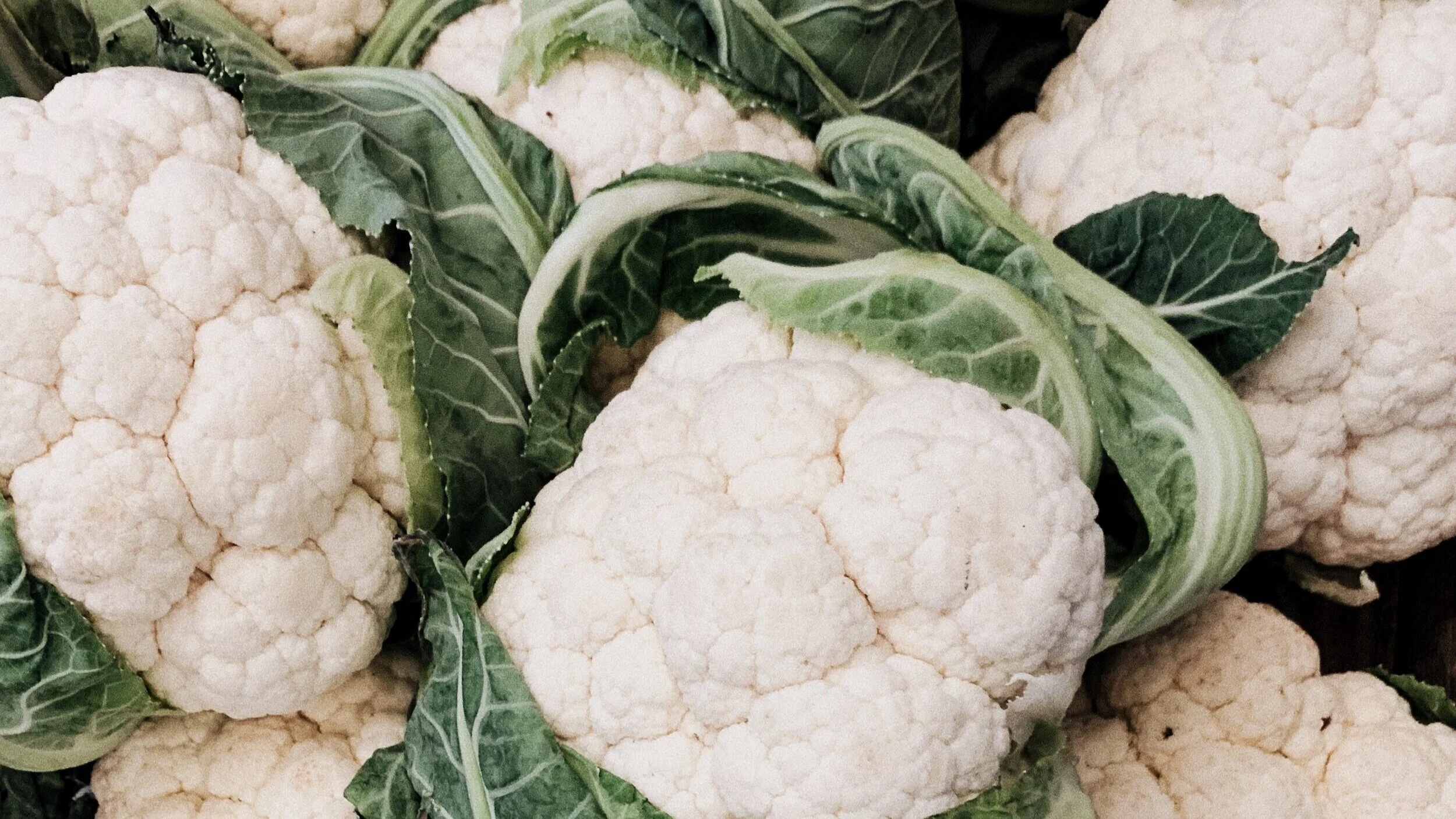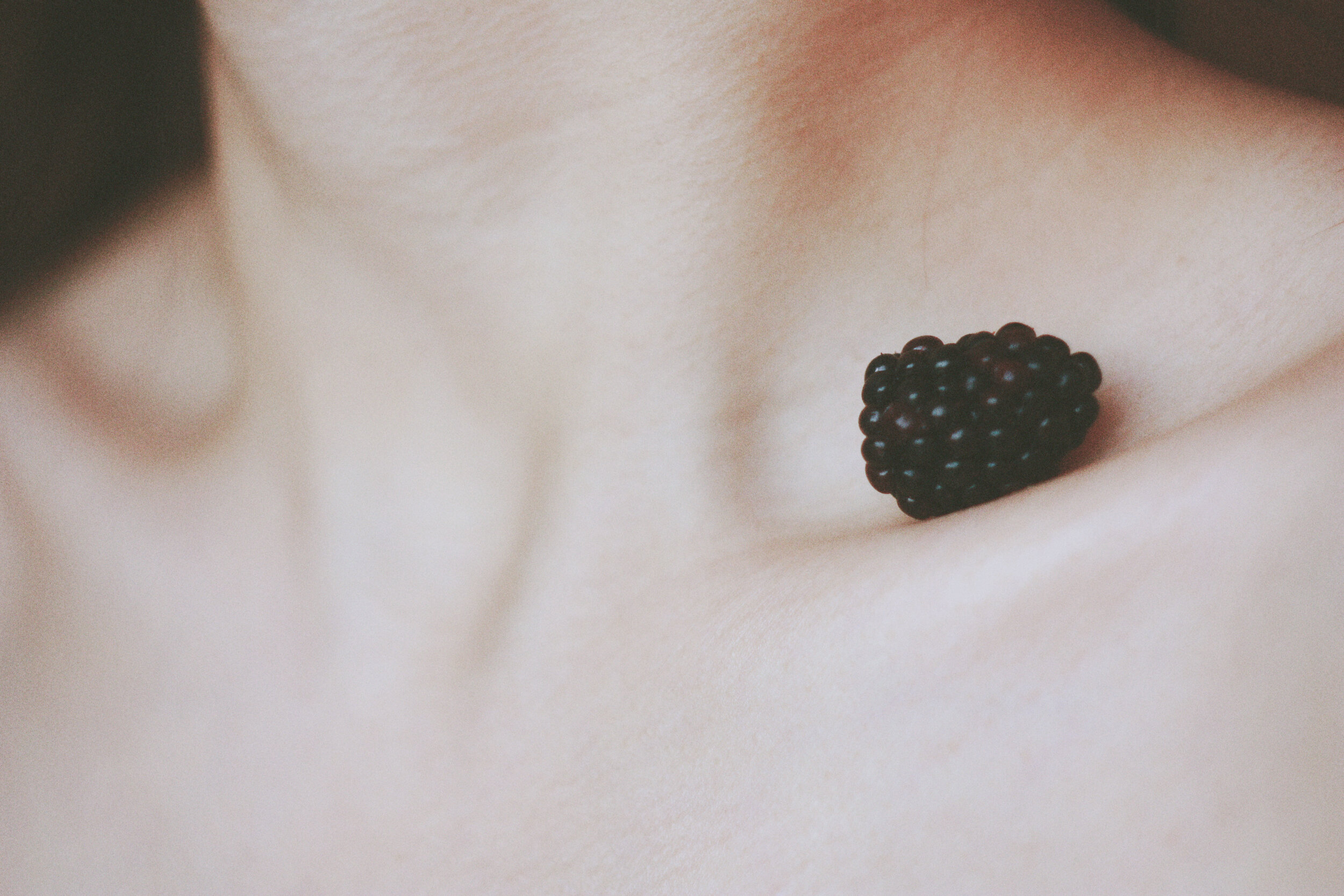Why You Should Still Eat Cruciferous Vegetables, Even (Especially?) If You Have a Thyroid Disorder
If you have a thyroid disorder, like me, I’m willing to bet you’ve been told by somebody to avoid broccoli.
But…why?
Cruciferous vegetables, along with foods like radishes, peaches & strawberries, have been condemned due to their goitrogenic properties. But the consumption of cruciferous vegetables correlates with diverse health benefits, including reducing the risk of thyroid cancer! So, perhaps we should look at this a little more closely.
First of all, contrary to popular belief, the cruciferous family of vegetables refers to more than just broccoli and cauliflower. In fact, many of the most antioxidant, vitamin and mineral-rich vegetables are brassicas!
Here is a quick list!
Arugula
Bok Choy
Broccoli
Brussels sprouts
Cabbage
Canola
Cauliflower
Collard greens
Daikon
Horseradish
Kale
Maca
Mustard
Radish
Rapini
Rutabaga
Turnip
Wasabi
Watercress
That’s a long list of healthy foods! So, what’s the problem?
Goitrogens
Cruciferous vegetables are particularly high in glucosinolates. When they are chopped or chewed, these are sulfur-containing compounds break down into a variety of active compounds, many of which are powerful antioxidants. Two of those antioxidants are also known goitrogens: isothiocyanates and thiocyanates.
These two antioxidants, aside from their anti-cancer actions, can also block the activity of the enzyme thyroid peroxidase (TPO). TPO catalyze the production of thyroid hormones by converting iodide ions into iodine atoms. This iodine atoms are now able to connect with the amino acid tyrosine to make T4 (the T being tyrosine and the 4 being the number of iodine atoms). T4 is the thyroid prohormone, which still needs to be converted into T3 by a group of selenium-containing enzymes. When isothiocyanates or thiocyanates are consumed in large enough quantities, they may reduce thyroid hormone formulation via inhibition of TPO.
So then does eating cruciferous vegetable daily really cause hypothyroidism?
The answer you will still get from many health professionals is: yes. This is due to an early study that reported the development of goitres in iodine-deficient animals eating high amounts of cruciferous vegetables.
There are two problems with that.
1) These animals were iodine deficient. Would the same effect take place is a subject was not iodine deficient?
2) This was an animal study. Not a human study. Does the same thing take place in humans at all?
Well, some high quality studies from the last two years have finally given us those answers.
The Updated Science
A 2018 study observed the effects of a diet containing 7% freeze-dried rutabaga sprouts on three groups of rats. The first group was iodine deficient hypothyroid, the second was sulfadimethoxine-induced hypothyroid and the last was control (normal). The cruciferous-rich diet showed no significant changes in TSH, free T3 or free T4 in the control group. Excitingly, the iodine deficient group experienced a protective effect on thyroid damage, which decreased TSH significantly. However, the rutabaga seemed to exacerbate hypothyroidism in the sulfadimethoxine-trated rats, showing increased TSH and decreased both free T3 and T4).
A follow up study concluded that the rutabaga sprouts reduced oxidative stress on the thyroid in both iodine deficiency and the sulfadimethoxine groups. They also observed a trend towards reduced pro-inflammatory cytokines (TNF-a and IL-6) and increased anti-inflammatory cytokine IL-10. Most importantly, however, this follow up study showed no hypothyroidism-enhancing effect in the sulfadimethoxine-treated rats.
Another rat study performed in 2018 looked at the effects of a diet consisting of 7% freeze-dried broccoli sprouts on the same three groups. The broccoli sprouts did not impact the thyroid function of the control rats at all. As a bonus, the broccoli sprouts provided a protective effect on the thyroid in both the sufladimethoxine-treated rats and severely iodine deficient rats. The iodine deficient rats experience reduced levels of pro-inflammatory cytokine IL-6 and improved antioxidant capacity of the thyroid. The sulfadimethoxine group showed reduced TSH and increased free T3. Additionally, a selenium-containing enzyme that plays a key role in thyroid health, was significantly increased for all groups. The broccoli sprouts improved thyroid health on all counts!
These recent studies seem to suggest that cruciferous vegetable intake should not be a concern for thyroid health, even in the context of iodine deficiency. Rather, they may actually improve thyroid function!
But Megan, these are all rat studies. I thought we were going to address whether this holds true in humans?
Great catch! I’m getting there…
A human study conducted in 2019 took a water extract of 3-day old broccoli sprouts and treated it with myrosinase to convert the glucosinolates into sulforaphane (an isothiocyanate) and freeze dried it to form a powder. They then mixed the powder with pineapple and lime juice so the subjects would be unaware as to whether they were receiving the extract or the placebo. They were given a dose every day for 84 days. Compared to the paleo, the broccoli sprouts extract did not cause any change to TSH, free T4 or thyroglobulin. The participants with TPO and/or thyroglobulin antibodies, diagnosed with Hashimoto’s, showed no statistically significant changes, though there was a slight trend toward decreased antibodies. There was also a trend toward a decrease in the percentage of subjects with sub-clinical hypothyroidism, however, it was not statistically significant.
A similar study was performed in 2006 in which the participants consumed broccoli extract three times per day for 7 days. Similar results were found. No changes to TSH, T3 or free T4 were observed.
Conclusion
Given that there are now several studies that conclude that cruciferous vegetable consumption either does not inhibit or improves thyroid function seem to me to be good enough reason to squash the old myth and get back on the broccoli wagon!
On top of this concept that cruciferous vegetables could be damaging being debunked, they also have a variety of additional benefits. Cruciferous vegetables are rich in folate, vitamin C, E and K. They are high-fiber, something that is important for those with hypothyroidism to get plenty of in order to regulate the bowels. On top of that, as briefly alluded to before, these indoles and isothiocyanates that we’re so afraid of protect cells from DNA damage, inactive carcinogens, and have antibacterial and anti-viral effects. This is what provides that anti-cancer effect.
Now, if we are optimizing the autoimmune protocol, I am generally recommending 6-11 servings of vegetables daily. I do not need all of them to be cruciferous, but I do tend to recommend we try to work in 1-2 servings each day to reap all of those health benefits!
If you have any questions, queries, comments or concerns, please feel free to drop me a line below! Let’s have a conversation!
If you were surprised by this information and might be wondering what other mistakes you could be making for your thyroid health and your ability to find fertility, have a healthy pregnancy & a happy postpartum experience, check out my FREE GUIDE: Finding Fertility with Hypothyroidism!
Kisses & kombucha,
MK
Sources
Paśko, Paweł, et al. “Interaction between Iodine and Glucosinolates in Rutabaga Sprouts and Selected Biomarkers of Thyroid Function in Male Rats.” Journal of Trace Elements in Medicine and Biology : Organ of the Society for Minerals and Trace Elements (GMS), U.S. National Library of Medicine, Mar. 2018, https://www.ncbi.nlm.nih.gov/pubmed/29413100 .
Paśko, Paweł, et al. “Effect of Broccoli Sprouts on Thyroid Function, Haematological, Biochemical, and Immunological Parameters in Rats with Thyroid Imbalance.” Biomedicine & Pharmacotherapy = Biomedecine & Pharmacotherapie, U.S. National Library of Medicine, Jan. 2018, https://www.ncbi.nlm.nih.gov/pubmed/29080462 .
Paśko, Paweł, et al. “Animals in Iodine Deficiency or Sulfadimethoxine Models of Thyroid Damage Are Differently Affected by the Consumption of Brassica Sprouts.” SpringerLink, Springer US, 29 Mar. 2019, https://link.springer.com/article/10.1007/s12011-019-01694-7 .
Shapiro, Theresa A, et al. “Safety, Tolerance, and Metabolism of Broccoli Sprout Glucosinolates and Isothiocyanates: a Clinical Phase I Study.” Nutrition and Cancer, U.S. National Library of Medicine, 2006, https://www.ncbi.nlm.nih.gov/pubmed/16965241 .





